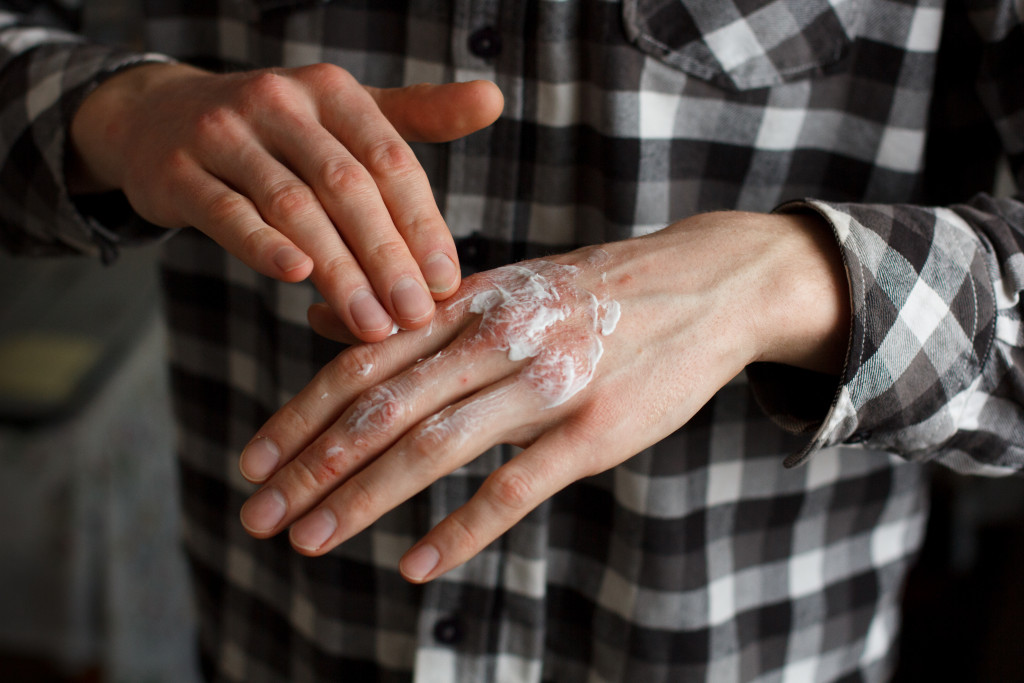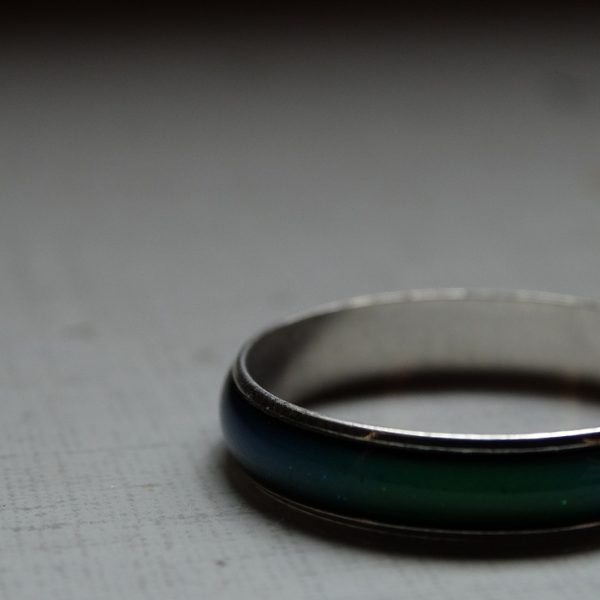A good night’s sleep is crucial for our well-being. Not getting enough rest can lead to fatigue, lack of concentration, and an inability to perform daily tasks effectively. To ensure you’re getting the best sleep possible, it’s important to create and maintain a nighttime routine that promotes healthy habits and clean sleep hygiene.
In this article, we will talk about how to do that and why it matters so much for your health. In addition, we will talk about insomnia and how to cure insomnia in 12 minutes.
Let’s get started!
The Science of Sleep
When it comes to getting a good night’s sleep, you may think that all you need to do is hit the bed and drift off into dreamland. But the science of sleep tells us that there is more to it! Let’s dive in and explore the fascinating world of sleep cycles, insomnia, and most importantly, how to practice good sleep hygiene.
Stages of Sleep: A Closer Look
Your body goes through four distinct stages during a normal night of rest:
- Light sleep – During light sleep, your eyes move slowly from side to side under your eyelids as your brain waves slow down.
- Deep sleep – Deep sleep is the deepest state of rest and your body repairs itself during this time.
- Rapid eye movement (REM) sleep – REM sleep is when you dream and your brain activity increases, although your body remains still.
- Wakefulness – It occurs for a few minutes between cycles to allow you to come back into consciousness.
Insomnia: When Sleep Is Elusive

When it comes to getting a good night’s rest, insomnia can be an issue for some people. Insomnia typically means struggling to fall or stay asleep for longer periods. It could be caused by medical conditions or lifestyle choices, such as drinking too much caffeine late in the day or working late hours at night. Later, we will discuss this sleeping disorder and how to cure insomnia.
Sleep Hygiene: The Best Way to Get a Good Night’s Rest
Sleep hygiene is the practice of making healthy habits and rituals to promote better sleep. This could include developing a routine for going to bed, such as:
- turning off all electronics an hour before bedtime
- avoiding napping during the day
- taking care of your physical health by exercising regularly and eating a balanced diet
- making sure your bedroom environment is comfortable, quiet, dark, and cool
- not drinking alcohol or caffeine close to bedtime
- limiting daytime stressors.
Science tells us that there is far more involved in getting a good night’s sleep than just hitting the pillow. Understanding the different stages of sleep, recognizing signs of insomnia, and practicing good sleep hygiene are all important steps in getting a restful night’s sleep. Follow the above tips to ensure you get a good night’s rest!
Creating a Nighttime Routine
Getting a good night’s rest is usually easier said than done! Creating a nighttime routine can help you establish healthy sleep habits and lead to more restful nights. This could include activities such as reading a book, taking a warm bath, meditating, or journaling, which can help reduce stress levels, and relax the mind before sleep.
Importance of Having a Consistent Bedtime and Wake-Up Time
Maintaining consistent bedtimes and wake-up times throughout the week are crucial parts of our routine. This not only helps keep your body on a regular schedule but also lets your mind settle into the same pattern each day. Setting an alarm for going to bed as well as waking up can help keep you on track.
Once you have established a regular bedtime, start winding down before that time arrives. Avoid electronics like phones, tablets, or computers two hours before bed so that your brain can begin to relax and turn off. Instead, engage in relaxing activities, such as showering or taking a warm bath, meditating, or reading a book.
Create an Ideal Sleep Environment
Ensuring the sleeping environment is comfortable and convenient for restful, good night’s sleep is essential. Creating a comfortable environment to help with your sleep troubles includes:
- adjusting temperature settings
- blocking out excess light or noise
- avoiding screens before bed
- sleeping on a comfortable mattress.
Keep the temperature in the bedroom pleasant – between 60-67 degrees Fahrenheit is ideal – and make sure your bedding is cozy. Choose sheets made of natural materials like cotton, which breathe well and don’t trap heat or moisture against your skin. Consider adding an essential oil diffuser with lavender oil to reduce stress and help you drift off into dreamland.
By establishing a nighttime routine, you will have created the perfect environment for a peaceful night! With regular bedtimes and wake-up times, as well as a comfortable sleep environment, you can look forward to restful nights and energizing days.
Lifestyle Habits for Better Sleep
Having good sleep hygiene is crucial for getting a good rest. Making healthy lifestyle changes and creating a nighttime routine can both have a positive impact on your quality of sleep. Diet and exercise are two important aspects you should consider when trying to get better sleep.
The Impact of Diet and Exercise on Sleep Quality

If you think your diet can’t possibly impact your sleep quality, think again. Those who consume foods that are high in protein, complex carbohydrates, and fiber, sleep better at night. By all means avoid caffeine, sugar, and processed foods before bed. These are known to increase alertness rather than encourage relaxation. Eating smaller portions during dinner or having an earlier dinner altogether may also leave you feeling less full and more relaxed at nighttime.
In terms of exercise, regular physical activity has been linked to increased quality of sleep. However, do keep in mind that exercising too close to bedtime may disrupt the sleep routine. It’s best to avoid any vigorous activity for at least an hour before going to bed. Instead, light stretching or yoga poses can be a great way to unwind and prepare for sleep.
Mindfulness Practices For Better Sleep
Mindfulness practices are known to improve sleep quality, reduce stress, and aid in relaxation. There are ways of improving your sleep through mindfulness.
One way to practice mindfulness for better sleep is through mindful breathing. When we take deep, slow breaths, we are sending signals to our mind and body that it’s time to relax. The act of inhaling and exhaling helps us focus on the present moment and do not worry about past or future events. Additionally, mindful breathing can also help reduce anxiety and tension that may be keeping us from sleeping well.
Meditation is another form of mindfulness that can help improve sleep quality. Practicing meditation allows us to become fully immersed in the present moment without getting caught up in thoughts or feelings that could prevent us from sleeping soundly. Regular meditation sessions can help us learn how to manage our stress levels, which can lead to more restful sleep.
Finally, journaling is another way to practice mindfulness for better sleep. Writing down your emotions and thoughts can be therapeutic as it allows us to process and release them. sleeping well. By addressing them through journaling, we look at the root of any issues that might be keeping us from having a healthy good night sleep.
Common Sleep Disorders
Sleep disorders are far more common than most people realize. Around 50-70 million Americans have some kind of sleeping disorder. These can range from sleep apnea to insomnia, restless leg syndrome, narcolepsy, and even snoring.
Insomnia and Ways to Cure Insomnia
Insomnia is the most common sleep disorder. This condition involves having a hard time to fall or stay asleep through the night. The symptoms of insomnia include:
- waking often during the night
- feeling exhausted in the morning regardless of how many hours you slept
- trouble concentrating or focusing during the day due to exhaustion
- anxiety about not being able to fall or stay asleep
Insomnia is a frustrating ailment to deal with, but there is hope. With the right approaches, you can begin getting better sleep in just 12 minutes! The first step in curing insomnia is making sure your bedroom is pleasant to sleep in. Keep the temperature cool and at a comfortable level and reduce noise interference from outside sources. If possible, darken the room to prevent artificial light from interrupting your sleep.
Next, start winding down for an hour before bedtime by implementing relaxation techniques such as deep breathing exercises or meditation. This will help reduce stress and anxiety levels before trying to fall asleep which is key to reducing insomnia symptoms.
There are also some helpful dietary changes you can make that may improve insomnia. Avoid caffeine and alcohol in the evening, and any foods that are high in sugar or fat, which can interfere with sleep. Eating a balanced diet of vitamins, protein, and carbohydrates will help you to get better rest.
Stop wondering how to cure insomnia quickly and start using our tips to enjoy a better sleep.
Sleep Apnea

Sleep apnea is another common sleep disorder where individuals pause their breathing while they are sleeping. This pause can last only for a few seconds or up to one minute, but it can occur several times throughout the night. Symptoms of sleep apnea include:
- Waking up feeling exhausted
- Snoring
- Difficulty focusing during the day
- Morning headaches
- Dry mouth
Restless Leg Syndrome
This is a common sleep disorder where people experience a cramped sensation in their legs while they’re trying to sleep. This symptom causes them to have the urge to move their legs which results in tossing and turning all night long. Other symptoms may include twitching of the leg muscles and pain in the leg when attempting to lay still for more than a few minutes.
How to Fix Insomnia and the Other Sleep Disorders
These common sleep disorders can have serious health consequences if left untreated such as:
- lack of energy
- increased risk of diabetes and cardiovascular diseases
- weight gain
- depression
- possible memory problems
It is important to seek help from a professional if these sleeping disorders become persistent or interfere with daily life.
Sleep professionals can offer various types of treatment for these common sleep disorders such as behavioral therapy, lifestyle changes, prescription medications, and even medical devices. It is essential to find the best solution for each individual’s needs to get back on track toward healthy sleep habits.
If you believe that you may be suffering from any of the above-mentioned sleep disorders, speak with your doctor right away so they can provide information about potential treatments and resources available. This can make a big difference in restoring healthy sleep habits and getting the restful nights of sleep that we all need for our well-being.
Conclusion
Having good sleep hygiene is important for getting a restful night. A nighttime routine can help set you up for success and improve your quality of sleep. Start by creating an environment that promotes relaxation. Keep the bedroom cool and dark, and make sure it’s quiet at all times. Wind down before bed with some calming activities like reading or meditating.
Make an effort to fall asleep and wake up at the same time, even on Saturday and Sunday. Avoid looking at bright screens like phones and TVs close to bedtime. If falling asleep is difficult, don’t stay in bed! Try something that will relax you until you feel tired again. And hopefully, our advice on how to cure insomnia in 12 minutes will help you. But if insomnia or other sleeping disorders persist despite these strategies, seek professional advice from a doctor or therapist who specializes in sleep medicine. With the right sleep hygiene habits, you can get the restful night’s sleep you need to stay productive. So give it a try tonight – your body will thank you!




